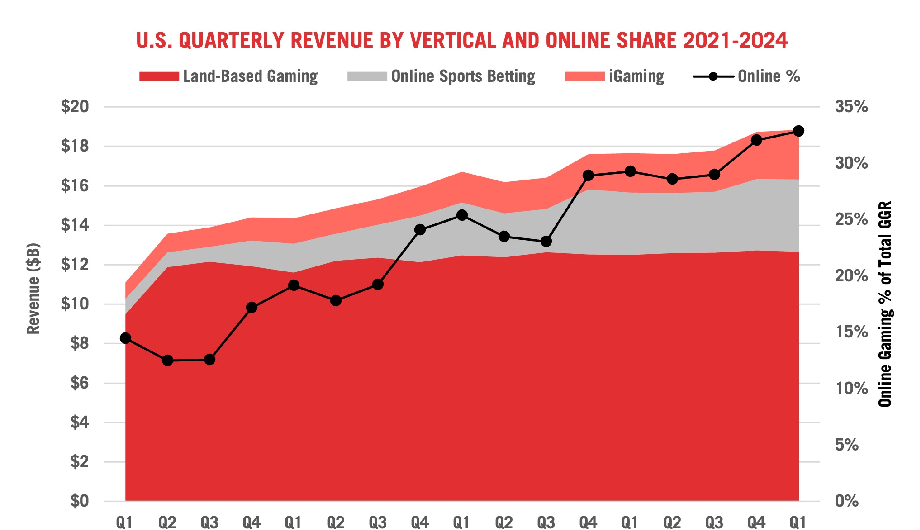Pennsylvania lawmaker recommits to the cause of legalising skill games
There are tens of thousands of unlicensed "skill games" that are now functioning throughout the state of Pennsylvania. A state senator in Pennsylvania is attempting to revisit his efforts to legalise and regulate these games.
Pennsylvania's revenue from sports betting In February
In preparation for the introduction of a new bill to officially legalise and regulate slot-like games, State Senator Gene Yaw started circulating a co-sponsorship memo last week. This was done in preparation for legislation. Over the course of the past few years, they have spread throughout the state of Pennsylvania, entering establishments such as taverns, truck stops, and other businesses. Pace-O-Matic (POM), a company based in Georgia, is the manufacturer of the games that are marketed under the name "Pennsylvania Skill." According to them, the fact that there is a component of skill that can improve one's chances of winning makes them legitimate.
An example of the skill component would be a feature that allows the player to position a "wild" symbol wherever on the reel grid within a predetermined amount of time in order to make a winning combination. This is an example of a feature that falls under the expertise category.
Opposition from the casino and industry
It is not impossible to find those who oppose the bill. Casino operators in the state, the American Gaming Association (AGA), and the Association of Gaming Equipment Manufacturers (AGEM) are some of the various organisations that fall under this category. They have been fighting against the proliferation of the games for a long time, arguing that they are unlawful slot machines that are not regulated. The fact that the games go on without any guarantees of their fairness and without any safeguards against money laundering or responsible gambling is one of the most important arguments that can be made against them.
In addition, they highlight the fact that the skill games are not subject to taxation, which means that the state does not get any revenue from them. Therefore, the games constitute an unfair form of competition for casino slot machines, which are subject to a state tax that is equivalent to 54% of the total revenue.
In the meantime, the courts in Pennsylvania have handed down a number of decisions that are favourable to POM. State authorities were the ones who took possession of the games in certain instances. It is the manufacturer's continuous practice to cite those decisions as evidence that the games are within the bounds of the law.
Does playing skill games mean playing unfairly?
POM has argued that the fact that the earnings from casino slot machines continue to set new records is evidence that skill games are not negatively impacting the operations of the casino slot industries. Furthermore, operators and slot manufacturers point to the lengthy background checks and license fees that they are required to pay in order to operate their businesses. These kinds of criteria are not applicable to businesses like Pace-O-Matic.
Over the course of the most recent legislative sessions, Yaw, who has reaped significant benefits from campaign contributions from makers of skill games, has proposed legislation to legalise and regulate the games. But none of them have been brought to a vote on the floor. He is backed by proprietors of establishments such as pubs, private clubs, small enterprises, and charity organisations that profit from the collection of those funds.
A statement made by Yaw to The Centre Square stated that "skill games are a piece of the economy in our state." "They are not something that can and should be ignored."
In an interview with the journal, Mike Barley, chief public relations officer at POM, stated that the legalisation and regulation of cannabis will provide assistance for 15,000 workers at voluntary organisations and small enterprises located around the state.
"We ask lawmakers to pass this measure because it has helped many of these businesses and organisations stay afloat as they deal with inflation and worker shortages," he added. "We are asking lawmakers to allow this measure to be passed."
Proposals for bills
The measure proposed by Yaw would mandate that these machines be connected to a centralised collecting and control system, as well as establish a minimum age requirement for playing the games. This is to ensure that taxes are collected in an accurate manner. The tax rate of sixteen percent is the one that has been proposed by supporters.
In particular, the subject of taxation has been a source of contention among the casino owners in the state. In July of last year, operators filed a lawsuit against the state in an effort to compel a tax on skill games. They said that the fact that skill games are not taxed undermines the constitutionality of their own 54% tax on slot earnings.
The National Council of Legislators from Gaming States held a conference in July, and during that time, a group of specialists reached a consensus that the games in question are unlawful. However, they pointed out that it would be challenging to implement a ban on the games at this time because, according to some estimates, there are as many as 100,000 of them operating in the state of Pennsylvania.


